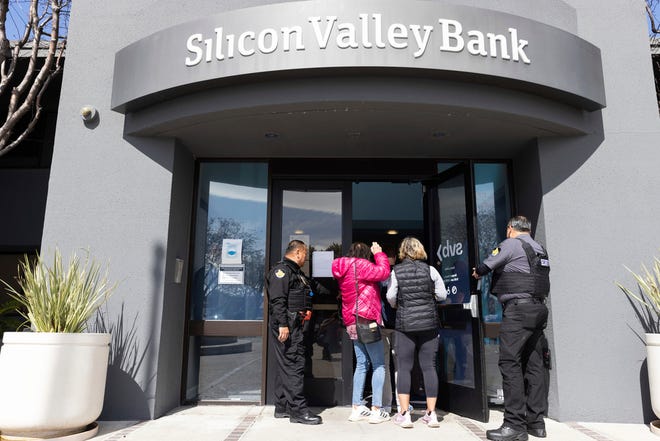Banks have made it more difficult for consumers and businesses to get a loan in recent months amid the collapse of a Silicon Valley bank and two other institutions, heralding a dim outlook for the US economy, according to a Federal Reserve survey.
Forty-two percent of banks said they have somewhat tightened lending standards for large and medium-sized businesses over the past three months, according to a survey of the Fed’s chief loan officers. And 45% said they had somewhat tightened standards for lending to small businesses.
A similar proportion of banks were already making borrowing more difficult for consumers and businesses in the prior three-month period due to an increasingly unstable economy and Fed hikes in interest rates.
While banks reiterated concerns about the economy and reduced risk tolerance in the latest survey, small and medium-sized banks cited concerns about customer withdrawals of deposits, liquidity concerns and funding costs.
Are electric cars becoming less popular?Are electric vehicle sales declining? Electrification of the car market may be more difficult. Here’s why
Learn more: The best personal loans
College debt:What does raising interest rates for student loans mean?
According to the survey, banks have tightened standards for consumer lending, auto loans and credit cards. Credit card balances are at a record high and delinquency rates are rising as low- and middle-income households struggle with soaring inflation.
Banks also said they expect to further tighten lending standards for the rest of the year for all types of loans.
The survey said demand for loans by households and businesses has also waned. Customers’ appetite to borrow to finance home and auto purchases has waned as the Federal Reserve has raised interest rates sharply over the past 14 months, driving up borrowing costs.

In March, Silicon Valley Bank and Signature Bank collapsed as many customers withdrew their deposits over concerns about the banks’ survival amid large investment losses. Their Treasury holdings have fallen in value as the Fed has raised interest rates sharply over the past 14 months.
The Federal Reserve, the Treasury Department and the Federal Deposit Insurance Corporation eased the panic by announcing that they will guarantee depositors will get their money back even if their accounts exceed the $250,000 FDIC insurance limit.
But concerns have spread to other regional banks, and First Republic Bank last week became the third bank to fail.
Remember the alarmMercedes-Benz is recalling 3,800 vehicles due to battery problems. Check out the recalls here
Last week, the Fed raised its key interest rate by a quarter of a percentage point to a range of 5% to 5.25%, capping off the biggest wave of rate increases in 40 years to tame a historic high inflation. But the Fed has indicated it may pause, noting that a banking crisis is likely to dampen economic growth and inflation, leaving the Fed with less work to do.
“In principle, we wouldn’t have to drive the rate quite as high as if it didn’t,” Federal Reserve Chairman Jerome Powell said at a news conference.





/cdn.vox-cdn.com/uploads/chorus_asset/file/25550621/voultar_snes2.jpg)

More Stories
Bitcoin Fees Near Yearly Low as Bitcoin Price Hits $70K
Court ruling worries developers eyeing older Florida condos: NPR
Why Ethereum and BNB Are Ready to Recover as Bullish Rallies Surge